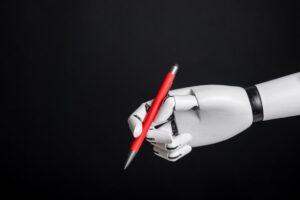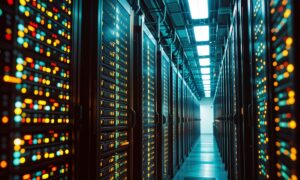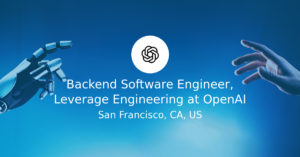Insights on the Future of Work from OpenAI’s $40 Billion Funding Round

SANTA MONICA, CA – APRIL 5: OpenAI CEO Sam Altman (R) and Oliver Louis Mulherin (L) at the Annual Breakthrough Prize Awards and Ceremony held in Santa Monica, California. (Photo by Tayfun Coskun/Anadolu via Getty Images)
OpenAI has recently completed a monumental funding round, raising a staggering $40 billion from investors including SoftBank and Microsoft. This achievement not only changes the landscape of technology financing but also suggests a significant transformation in how we work. With a valuation surpassing $300 billion, OpenAI is positioned as a pioneering figure in artificial intelligence (AI), influencing organizational operations and growth strategies across various industries.
The emergence of AI is not just a supplementary tool; it is evolving to become central to strategic business functions. Organizations from HR departments to team managers must recognize the immediate and far-reaching implications of this technology.
AI as a Strategic Partner
Traditionally, AI has been utilized as an assistant, helping with tasks like answering emails and organizing schedules. However, recent changes in funding and research indicate a significant shift towards AI taking on more strategic responsibilities. This transition will see AI becoming a core part of decision-making processes rather than just providing support.
Generative AI is breaking new ground, developing greater awareness of context and the ability to engage in sophisticated tasks. According to the latest McKinsey report, 78% of organizations are implementing AI in at least one business area, up from 55% in the previous year. This growing acceptance underscores a higher level of trust in AI at leadership levels, particularly among C-suite executives.
Technical Advancements
In technical fields, the impact of AI becomes even more pronounced. Avi Freedman, CEO of Kentik, stated that network issues, once the domain of seasoned engineers, can now be addressed by anyone—from developers to analysts—simply by asking the right questions in their preferred language. This democratization of AI in tech roles highlights its potential to create operational efficiency and enhance accessibility to complex processes.
Reimagining Work Dynamics
Rather than simply replacing jobs, AI is reshaping them. This concept revolves around breaking down existing job roles into individual tasks, refining those tasks, and reconstructing them into dynamic workflows. Currently, 21% of firms utilizing generative AI have already restructured some workflows to incorporate this technology, particularly in departments like marketing and IT.
Future job roles in marketing may blend strategy, engineering prompts, and data analysis. In HR, humans will focus on emotional support and assessments while AI manages forecasting and compliance. This evolution does not signify the obsolescence of human workers; instead, it highlights a shift in the kind of work humans will engage in, emphasizing creativity, judgment, and interpersonal skills. While this transition presents challenges, particularly for roles reliant on routine tasks, it also opens new opportunities.
Infrastructure and Competitive Edge
At the heart of OpenAI’s progress lies the crucial infrastructure necessary for scaling AI applications. The joint initiative called Stargate—valued at $500 billion with partners like SoftBank and Oracle—is focused on creating advanced data centers to support extensive AI functions. With an initial investment of $100 billion targeted at sites in Texas, this effort is not just about technology; it’s a competition for resources essential for AI development.
This infrastructure will play a critical role in determining which companies can effectively integrate AI into their operations. Those that lag in infrastructure may struggle against competitors already leveraging AI capabilities, leading to disparities in productivity and workplace satisfaction.
Revisiting Employee Relations
As AI continues to manage various operational aspects, the relationship between employers and employees will require reevaluation. A report from McKinsey indicates that 38% of businesses are redirecting time saved through automation toward new initiatives. However, some companies are also reducing their workforce, particularly in sectors like customer service, where AI shows the highest efficiency.
New roles are emerging in response to the evolving landscape, such as AI compliance officers and ethics specialists. Companies are increasingly focusing on retraining existing employees to prepare them for new job functions, leading to a workforce divided between those adept at working with AI and those who are not. As skill requirements change, organizations must prioritize continuous learning.
Shaping Workplace Culture with AI
Looking ahead, we can expect that a company’s culture will increasingly be influenced by AI. This technology will be involved in performance evaluations, recruitment processes, customer interactions, and communication tools. The implications of this trend are significant, as AI can mold what behaviors and attributes are recognized or overlooked within an organization.
Companies with clear frameworks for AI integration and defined performance metrics are likely to achieve better outcomes according to McKinsey. The challenge for leadership will be to manage how AI influences team dynamics and to ensure that the systems in place promote fairness and diversity. As AI becomes embedded in workplace interactions, addressing biases and fostering inclusivity will become essential for organizational health.






